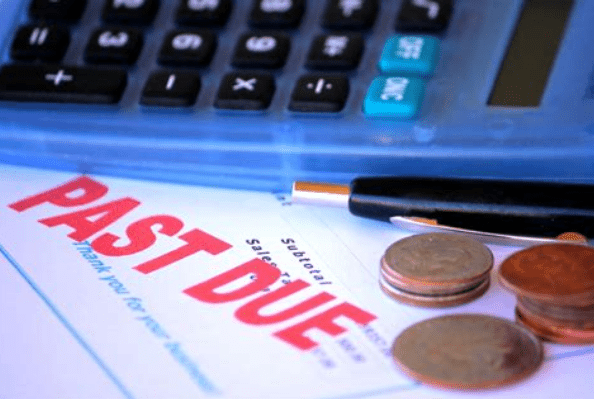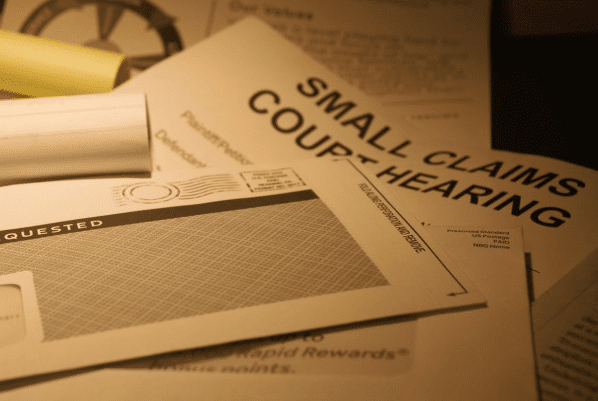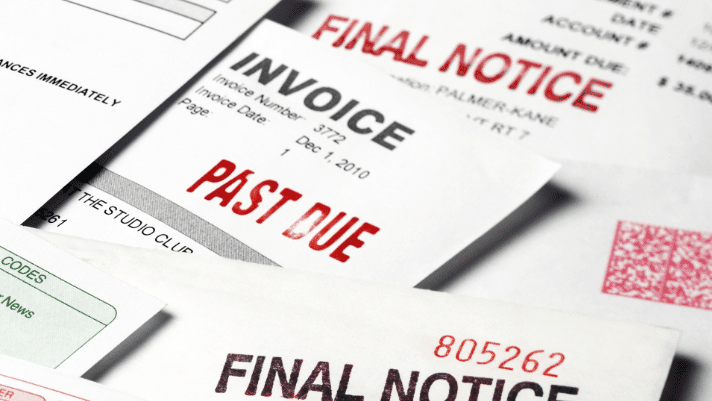Facing a debt lawsuit in New Hampshire can be stressful, but it’s essential to act swiftly. You have a 30-day window to respond to the lawsuit to avoid potentially losing by default judgment. Responding requires filing an Answer document, where you address each claim made against you and assert any affirmative defenses you may have.
With ZumaZip, drafting and filing an Answer in New Hampshire is a straightforward process that can be completed in minutes. Our platform guides you through each step, ensuring that you can prepare and submit your response efficiently. Don’t delay—take control of your legal situation with ZumaZip today.
It can be pretty stressful to find out you’re being sued by a debt collection agency in New Hampshire.
Chances are if you are behind on repaying a debt that you’re already working as hard as you can to make ends meet and cover your expenses so there’s no extra money to hire legal assistance. You might feel intimidated about responding on your own and tempted to just ignore the whole thing, but if you do you’ll end up in an even worse financial circumstance.
Both ZumaZip and the information in this article can make the process of responding to a lawsuit a little less scary by going over each step for responding to a debt collection lawsuit in New Hampshire. Below we will include New Hampshire specific deadlines and forms to make drafting and filing your response more easily.
Table of Contents
- Deadlines
- Steps to Respond
- Statute of Limitations in New Hampshire
- New Hampshire Legal Aid Organizations
- What is ZumaZip?
- Key Takeaways
- Guides for Other States
Sued for debt? Settle your debt before going to court with the help of ZumaZip Settle.
Respond to your debt lawsuit before the New Hampshire deadline
In New Hampshire, the deadline for responding to a debt collection lawsuit is 30 days.
More specifically, New Hampshire Rules of Civil Procedure Rule 4(e) states:
“Appearances and Answers are due within 30 days of the date the defendant is served with the Summons and Complaint.”
So, if you do not respond to your debt lawsuit within 30 days in New Hampshire, then you will lose the case by inaction. The Court will issue something called a default judgment, which means that the plaintiff (the debt collection agency who filed the lawsuit) wins the case and you have no more opportunity to refute any of the allegations in the Complaint (such as whether you owe the debt or the amount.)
The next step in New Hampshire is to require a payment plan hearing (by filing a Motion for Periodic Payments) in court to determine the repayment schedule. If you did not respond within the 30 day timeframe you won’t be able to contest the amount owed or anything else at that hearing.
By filing your response before the deadline runs out, you are preserving all of your rights in this matter, and have the best chance to make any arguments if this isn’t your debt or the amount is unreasonable.
New Hampshire Answer to Summons Forms
You can use the ZumaZip Answer form to generate your response, or you can do it on your own using the forms below.
The New Hampshire court system provides online forms so that you can fill in the required information in your response, already in the proper format. The response forms are different depending on which court you are being sued in. Any debt collection lawsuit will be in either the Circuit Court District Division (civil claims up to $25,000) or Small Claims Court (value up to $5,000.) Use the Summons and Complaint to determine which court you are in, then use the corresponding form below:
New Hampshire Circuit Court Answer Form
Response to Small Claims
If you decide to go with ZumaZip, we will take care of the work for you by creating your Answer and filing it on your behalf. All you will need to do is answer a few questions online. In addition, an attorney will review the completed Answer to verify that everything is in proper order.
Answer Filing Fees for New Hampshire
Good news: there is no fee to file an Answer in New Hampshire. However, there may be filing fees for other types of documents, such as counterclaims.
You can find filing fee information here for the Circuit Court- Division District
Steps to Respond to a Debt Collection Case in New Hampshire
The debt collection lawsuit against you begins when you are served the Summons and Complaint. In New Hampshire you have 30 days to respond by filing an Answer, which contains all of the relevant information from the Summons and Complaint, including the following:
- Your personal information including name and address
- Information about the plaintiff, including the name of the company and attorney filing on their behalf.
- Court information included in the caption, such as the name and address of the court, the proper district, and the assigned case number
ZumaZip can help you collect the information and format it for you
If you fail to respond within the 30 day period, you will lose the case if the court will file a default judgment against you and grant the plaintiff a Motion for periodic payments. To avoid this outcome and respond to a New Hampshire debt lawsuit, follow the three steps below:
- Answer each issue of the Complaint
- Assert affirmative defenses
- File the Answer document with the court and serve the plaintiff with a copy
Below, we’ll break down each of these steps in detail.
1. Answer each issue of the Complaint
When you get sued for debt in New Hampshire, you’ll receive court documents known as the Summons and Complaint. The Summons notifies you of the lawsuit. The Complaint lists the specific claims against you.
In your Answer document, you should address each claim listed in the Complaint in corresponding order with one of the following three responses:
- Admit
- Deny
- Unable to Admit or Deny for lack of information
You can admit facts that are true, such as your name or account number. You should deny any allegations that are untrue, and if you don’t have information to properly answer an allegation (such as plaintiff’s debt collection agency is incorporated in X state) use the third option. There is also space for you to add an explanation or affirmative defense where appropriate. We will discuss affirmative defenses in detail later in this article.
Note that most attorney recommend denying as many claims as possible. This will force the creditor or debt collector suing you to prove their claims.
Respond to each claim in minutes with the help of ZumaZip.
The New Hampshire court system offers online forms to create your Answer document when you have been sued. At the top you should fill in the Court name, case name and case number. The Court will either be the Circuit Court District Division (for lawsuits up to $25,000) or Small Claims Court (for lawsuits up to $5,000.)
If you are being sued in District court you can use this fillable pdf form to create your Answer document. After you fill in the court information there is a checkbox for you to request a jury trial or bench trial. Most debt collection cases are simply before a judge (or bench trial.) Fill out your personal information, and then answer each numbered paragraph of allegations in the Complaint. The form allows for only answers to the first three numbered paragraphs so you will likely need to print out or copy additional pages to answer the entire Complaint.
If you are being sued in Small Claims Court (which should be clear again from your Summons and Complaint and the amount of debt) you can use this fillable pdf form for your Answer instead. Here again you fill out the court information at the top from the Summons and Complaint, followed by your personal information under “Defendant name” etc. Next you should check a box in Section A to indicate which option you intend to pursue:
- Request for Court Hearing
- Claim Not Disputed/Payment of Claim (after which a payment hearing will be scheduled to determine a payment schedule)
- Request for Jury Trial in Superior Court (only available for claims over $1,500.)
- Bankruptcy Filed
You should then move on to Section B if you are pursuing any Counterclaims (more on this in the next section) or Section C if you are filing this on behalf of another person or entity.
ZumaZip makes it much easier to properly respond to each paragraph.
2. Assert affirmative defenses.
The next step in your Answer is typically to assert your affirmative defenses, if any.
Affirmative defenses are any reasons why this case against you is not valid. These affirmative defenses are all set forth in the New Hampshire Court Rules of Civil Procedure, and we will discuss a few of the most common below.
Common affirmative defenses:
- Accord and Satisfaction – this refers to a situation where you have paid some of the debt in full satisfaction of the total. Most likely this would be through an agreement you made with the original creditor that might avoid additional costs, like state of New Hampshire debt collection fees or late payment penalties.
- Payment – If you’ve already paid the debt and can prove it then the plaintiff most certainly does not have a case against you. This is not uncommon because third party debt collection agencies may have purchased the debt from your original creditor without checking for a payment history.
- Release – If you previously filed a bankruptcy case that went to discharge which included this debt, then the plaintiff (or any party) no longer has the option to seek collection on the debt through the court. Once it is discharged in bankruptcy you are no longer legally obligated to pay it.
- Statute of limitations – this refers to a time limit to pursue specific actions through the court. As we will discuss in more depth below, the statute of limitations under New Hampshire debt collection laws is between three and twenty years, depending on the type of debt.
Make the right defense the right way with ZumaZip.
Please note that if you are using the New Hampshire Answer form, you will be listing any affirmative defenses in the same numbered paragraph response as your response to the Complaint.
You also have the option to assert counterclaims if you believe that the plaintiff violated any debt collection laws in New Hampshire. There is a form available if you want to file a counterclaim, but please note that this can get very complicated very quickly. You may be best served by having legal assistance from an attorney in this area of law.
3. File the answer with the court and serve the plaintiff.
The final step is the most straightforward but surprisingly the most often missed. After you draft your response you need to make sure to file it with the Court to prove that you have responded within the allowed 30 day timeframe.
In New Hampshire, you can drop your Answer off at the court. Otherwise, you must file your documents electronically. ZumaZip has e-filed Answers into hundreds of New Hampshire cases and can help you navigate the process.
After filing with the court, be sure to send a copy of your Answer to the plaintiff’s attorney. The attorney’s contact information should be listed on the Summons and Complaint documents. You can mail this to the attorney, otherwise, the e-filing system can help you serve the plaintiff’s attorney electronically at the same time of filing.
Why ZumaZip?
ZumaZip is your trusted partner in standing up to debt collectors. Our platform provides a user-friendly solution for responding to debt lawsuits, communicating with collectors, and negotiating debt settlements.
With ZumaZip’s Answer service, navigating the legal process becomes effortless. Our step-by-step web application guides you through each crucial question to complete your Answer. Once you’ve finished, our team of attorneys reviews your document to ensure accuracy and completeness before filing it on your behalf.
With ZumaZip, you can confidently address debt-related challenges, knowing that your responses are supported by professional expertise and thorough review.
The statute of limitations on debt in New Hampshire can protect you
The statute of limitations for debt collection in New Hampshire is typically three years. This means that the statute of limitations on credit card debt, student loan, auto loan, mortgage, and personal loan debt is three years in New Hampshire.
In other words, creditors and debt collectors only have three years to sue you, starting from the date of your last action on an account. If a creditor or collector tries to sue you for a debt that is past the statute of limitations, you can use this information as an affirmative defense in your Answer document. This will most likely lead to a dismissal of your case.
The table below further outlines the statute of limitations on different types of debt in New Hampshire:
| Debt Type | Deadline |
|---|---|
| Credit Card | 3 years |
| Medical | 3 years |
| Student Loan | 3 years |
| Auto Loan | 3 years |
| Mortgage | 3 years |
| Personal Loan | 3 years |
| Judgment | 20 years |
| Findlaw |
New Hampshire legal aid organizations can help you
Every state has legal aid organizations available to offer free legal services for their residents who cannot otherwise afford assistance. Some of these New Hampshire organizations are listed below:
- New Hampshire Legal Assistance
- Legal Aid and Referral Center
- New Hampshire Legal Aid
- The New Hampshire Access to Justice Commission
- The NH Judicial Self-Help Center
- Pro Bono Program of the New Hampshire Bar Association
New Hampshire State Court Locations
The New Hampshire Judicial Branch website has a court directory to help consumers, like you, find important information pertaining to their case. The New Hampshire court directory can help you find your court location, the clerk’s phone number, e-filing information, and more.
Key Takeaways
In short, here’s a quick review on how to answer a summons for debt collection in New Hampshire.
Remember your response deadline is 30 days. You can use the ZumaZip Answer form to draft and file your response in minutes online. Otherwise, you can respond on your own with the New Hampshire Circuit Court Answer Form or Response to Small Claims Form
To respond to a debt lawsuit in New Hampshire, follow these three steps:
- Answer each issue in the complaint.
- Assert your affirmative defenses
- File and serve the Answer
What is ZumaZip?
ZumaZip is a convenient solution designed to streamline your response to a debt collection lawsuit. Here’s a breakdown of what you can expect when you use ZumaZip:
Firstly, you’ll access our user-friendly web application, which guides you through the process step by step. You’ll be prompted to answer a series of questions related to your specific situation. Once you’ve completed the questionnaire, you have the option to either print out the finalized forms and mail them to the appropriate courts yourself, or you can opt to utilize ZumaZip’s services to file them on your behalf. Additionally, if you choose this option, an attorney will review your document for added peace of mind.
If you’re seeking guidance on how to effectively respond to a debt collection lawsuit, ZumaZip can provide the assistance you need. Feel free to explore our FAQs for more information on what ZumaZip has to offer.
What if I haven’t been sued yet?
If you’ve only received a collections notice, but not a lawsuit, the best way to respond is with a Debt Validation Letter. When a debt collector contacts you in any way, whether it’s by phone or mail, you can respond by formally requesting a debt validation with a Debt Validation Letter . This letter notifies the collector that you dispute the debt and forces them to provide proof you owe the debt. They can’t call you or continue collecting until they provide validation of the debt. This flowchart shows how you can use a Debt Validation Letter to win.
Get started with a Debt Validation Letter here.
How to Answer a Summons for debt collection in all 50 states
Here’s a list of guides on how to respond to a debt collection lawsuit in each state:
- Alabama
- Alaska
- Arizona
- Arkansas
- California
- Colorado
- Connecticut
- Delaware
- Florida
- Georgia
- Hawaii
- Idaho
- Illinois
- Indiana
- Iowa
- Kansas
- Kentucky
- Louisiana
- Maine
- Maryland
- Massachusetts
- Michigan
- Minnesota
- Mississippi
- Missouri
- Montana
- Nebraska
- Nevada
- New Hampshire
- New Jersey
- New Mexico
- New York
- North Carolina
- North Dakota
- Ohio
- Oklahoma
- Oregon
- Pennsylvania
- Rhode Island
- South Carolina
- South Dakota
- Tennessee
- Texas
- Utah
- Vermont; Vermont (Small Claims court)
- Virginia
- Washington
- West Virginia
- Wisconsin
- Wyoming
Guides on how to beat every debt collector
Hey there! Facing off against a debt collector can feel like a daunting challenge, but fear not! We’re here to help you navigate through it all with our handy guides designed to assist you in beating every debt collector you encounter. Whether you’re facing a new lawsuit or dealing with a persistent collector, we’ve got your back. Stay positive, stay informed, and let’s tackle this together!
- Absolute Resolutions Investments LLC
- Accredited Collection Services
- Alliance One
- Amcol Clmbia
- American Recovery Service
- Asset Acceptance LLC
- Asset Recovery Solutions
- Associated Credit Services
- Autovest LLC
- Cach LLC
- Cavalry SPV I LLC
- Cerastes LLC
- Colinfobur
- Covington Credit
- Crown Asset Management
- CTC Debt Collector
- Cypress Financial Recoveries
- Delanor Kemper & Associates
- Eagle Loan of Ohio
- Educap
- Estate Information Services
- FIA Card Services
- Forster & Garbus
- Freshview Solutions
- Fulton Friedman & Gullace LLP
- Harvest Credit Management
- Howard Lee Schiff
- Hudson & Keyse LLC
- Integras Capital Recovery LLC
- Javitch Block
- Jefferson Capital Systems LLC
- LVNV Funding
- Mannbracken
- Mariner Finance
- Medicredit
- Michael J Adams PC
- Michael J Scott
- Midland Funding LLC
- Mullooly, Jeffrey, Rooney & Flynn
- Mountain Land Collections
- MRS Associates
- National Collegiate Trust
- Nationstar Foreclosure
- Northstar Capital Acquisition
- NCEP LLC
- NRC Collection Agency
- OneMain Financial
- Palisades Collection LLC
- Pallida LLC
- Paragon Revenue Group
- Pinnacle Collections Agency
- PMAB LLC
- Portfolio Recovery Associates
- Provest Law
- PYOD LLC
- Reunion Student Loan Finance Corporation
- Revenue Group
- Regents and Associates
- RSIEH
- Salander Enterprises LLC
- Second Round Sub LLC
- Security Credit Services
- Sherman Financial Group
- Suttell and Hammer
- T-Mobile
- Transworld Systems
- Tulsa Teachers Credit Union
- UCB Collection
- Velo Law Office
- Velocity Investments
- Waypoint Resource Group
- Weinberg and Associates
- Wolpoff & Abramson
Settle your medical debt
Having a health challenge is stressful, but dealing medical debt on top of it is overwhelming. Here are some resources on how to manage medical debt.
- Am I Responsible for My Spouse’s Medical Debt?
- Do I Need a Lawyer for Medical Bills?
- Do I Need a Lawyer to Fight Medical Bill Debt?
- Does Bankruptcy Clear Medical Debt?
- How Much Do Collection Agencies Pay for Medical Debt?
- How to Find Medical Debt Forgiveness Programs
- Is There a Statute of Limitations on Medical Bills?
- Medical Debt Statute of Limitations by State
- Summoned to Court for Medical Bills — What Do I Do?
- Summoned to Court for Medical Bills? What to Do Next
Stop calls from Debt Collectors
Do you keep getting calls from an unknown number, only to realize that it’s a debt collector on the other line? If you’ve been called by any of the following numbers, chances are you have collectors coming after you, and we’ll tell you how to stop them.



































